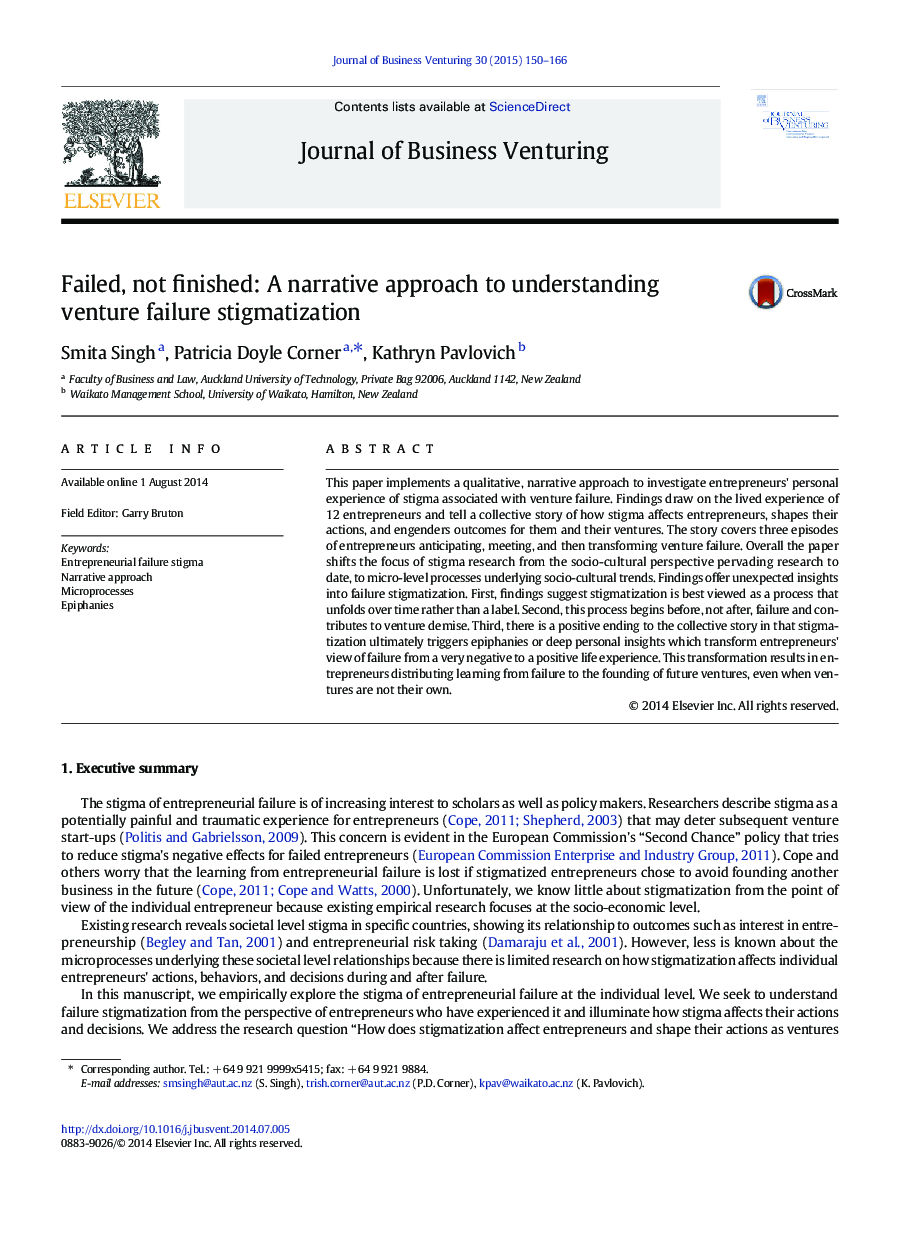| Article ID | Journal | Published Year | Pages | File Type |
|---|---|---|---|---|
| 1019345 | Journal of Business Venturing | 2015 | 17 Pages |
•We empirically explore the stigma of entrepreneurial failure at the level of individual entrepreneurs who experience it.•We implement a narrative research design using data from in-depth interviews of entrepreneurs whose first venture failed.•Findings reveal a collective story of stigmatization in three episodes: anticipating, meeting, and transforming failure.•Stigma occurs before ventures actually fail, affects entrepreneurs’ behavior, and contributes to venture demise.•Stigma, at the individual level, is best viewed as a process, not a label. The process view can inform future research.
This paper implements a qualitative, narrative approach to investigate entrepreneurs' personal experience of stigma associated with venture failure. Findings draw on the lived experience of 12 entrepreneurs and tell a collective story of how stigma affects entrepreneurs, shapes their actions, and engenders outcomes for them and their ventures. The story covers three episodes of entrepreneurs anticipating, meeting, and then transforming venture failure. Overall the paper shifts the focus of stigma research from the socio-cultural perspective pervading research to date, to micro-level processes underlying socio-cultural trends. Findings offer unexpected insights into failure stigmatization. First, findings suggest stigmatization is best viewed as a process that unfolds over time rather than a label. Second, this process begins before, not after, failure and contributes to venture demise. Third, there is a positive ending to the collective story in that stigmatization ultimately triggers epiphanies or deep personal insights which transform entrepreneurs' view of failure from a very negative to a positive life experience. This transformation results in entrepreneurs distributing learning from failure to the founding of future ventures, even when ventures are not their own.
